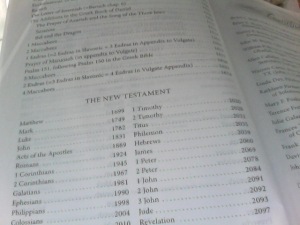Readings: Isaiah 9:2-7; Psalm 96; Titus 2:11-14; Luke 2: 1-14
Winter is a tricky time of year. For some it is memories of snowmen, skiing, holiday parties, and the adventure of swirling blizzards. For others it brings the bleakness of short days and cold nights, Seasonal Affective Disorder (SAD), holidays muted by the absence of departed loved ones, or the urge to get to the warmth of Florida as quickly as humanly possible. So it is, as the days of autumn rush toward late December, that many experience a paradoxical mix of anticipation and melancholy.
Over two-thousand years ago, as the days continued dark and discouraging for the people of Israel—occupied by Roman legions, deluged by worldly ways, ruled by a “king of the Jews” who wasn’t even Jewish—there was a similar mix of anticipation and melancholy. For hundreds of years their lives had not been their own as they were overrun and ruled by one kingdom after another with only the briefest glimpses of freedom. They had lived in this condition long enough that their various responses to their plight to become solidified into sects—Sadducees, Pharisees, Essenes—each with their own politics, theology, and lifestyles. One of the few things they may have had in common was the word of the prophet, Isaiah.
1Nevertheless, there will be no more gloom for those who were in distress. In the past he humbled the land of Zebulun and the land of Naphtali, but in the future he will honor Galilee of the nations, by the Way of the Sea, beyond the Jordan—
2The people walking in darkness have seen a great light;
on those living in the land of deep darkness a light has dawned.
3You have enlarged the nation and increased their joy;
they rejoice before you as people rejoice at the harvest,
as warriors rejoice when dividing the plunder.
4For as in the day of Midian’s defeat, you have shattered
the yoke that burdens them, the bar across their shoulders,
the rod of their oppressor.
5Every warrior’s boot used in battle and every garment rolled in blood
will be destined for burning, will be fuel for the fire.
6For to us a child is born,
to us a son is given,
and the government will be on his shoulders.
And he will be called
Wonderful Counselor, Mighty God,
Everlasting Father, Prince of Peace.
7Of the greatness of his government and peace
there will be no end.
He will reign on David’s throne
and over his kingdom,
establishing and upholding it
with justice and righteousness
from that time on and forever.
The zeal of the Lord Almighty
will accomplish this.
Isaiah 9:1-7 (NIV)
The days in which Isaiah uttered these words were days of hardship and fear. The northern kingdom of Israel had been overrun in an Assyrian invasion. Isaiah’s friends in the southern kingdom of Judah feared a similar fate. It was during these tense times that the Lord spoke through Isaiah with a message of hope. A light… a nation… a victory… a child… a King!
In one sense very little had changed in Israel in the 700 years since the time of Isaiah’s prophecy. Instead of the Assyrians or the Babylonians it was the Romans. Conditions were much the same. His words would have fallen on the ears of those in Jerusalem, Nazareth and Bethlehem in much the same way they had been heard by their ancestors: Don’t despair. God’s anointed messiah was on his way! Can you imagine the mixed emotions of anticipation and melancholy? Can you imagine the relief and joy of those who actually witnessed the life of the Child… the Son… the King?
Two-thousand more years have come and gone. Have our lives been overrun by worldly ways? Are we ruled by kings who bear no resemblance to the King of kings? Are we beginning to question the promise of the messiah’s Second Coming? Are we experiencing a SAD season—memories of spiritual victories and God’s breakthrough moments tempered by defeat and discouragement and a desperate longing for something more? Is it only melancholy, or is there a hint of anticipation?
Isaiah’s words were enough for his contemporaries as well as those who were tending their flocks on the hillsides around Bethlehem 700 years later. Are they enough for us today? In these tricky days of winter they are enough! Winter is a season of our spiritual lives when we may not see much happening. We may feel the melancholy that comes with dormancy. Yet, if we can but lift our heads above the snowbank we will get a glimpse of what is coming—a glimpse of springtime showers, summer warmth, and harvest time. Let the words of Isaiah kindle a spark of anticipation in your soul. The SAD season won’t last forever!
Come, Lord Jesus, Come.
Words offered by David Shaw – minister, listener, child of God.

